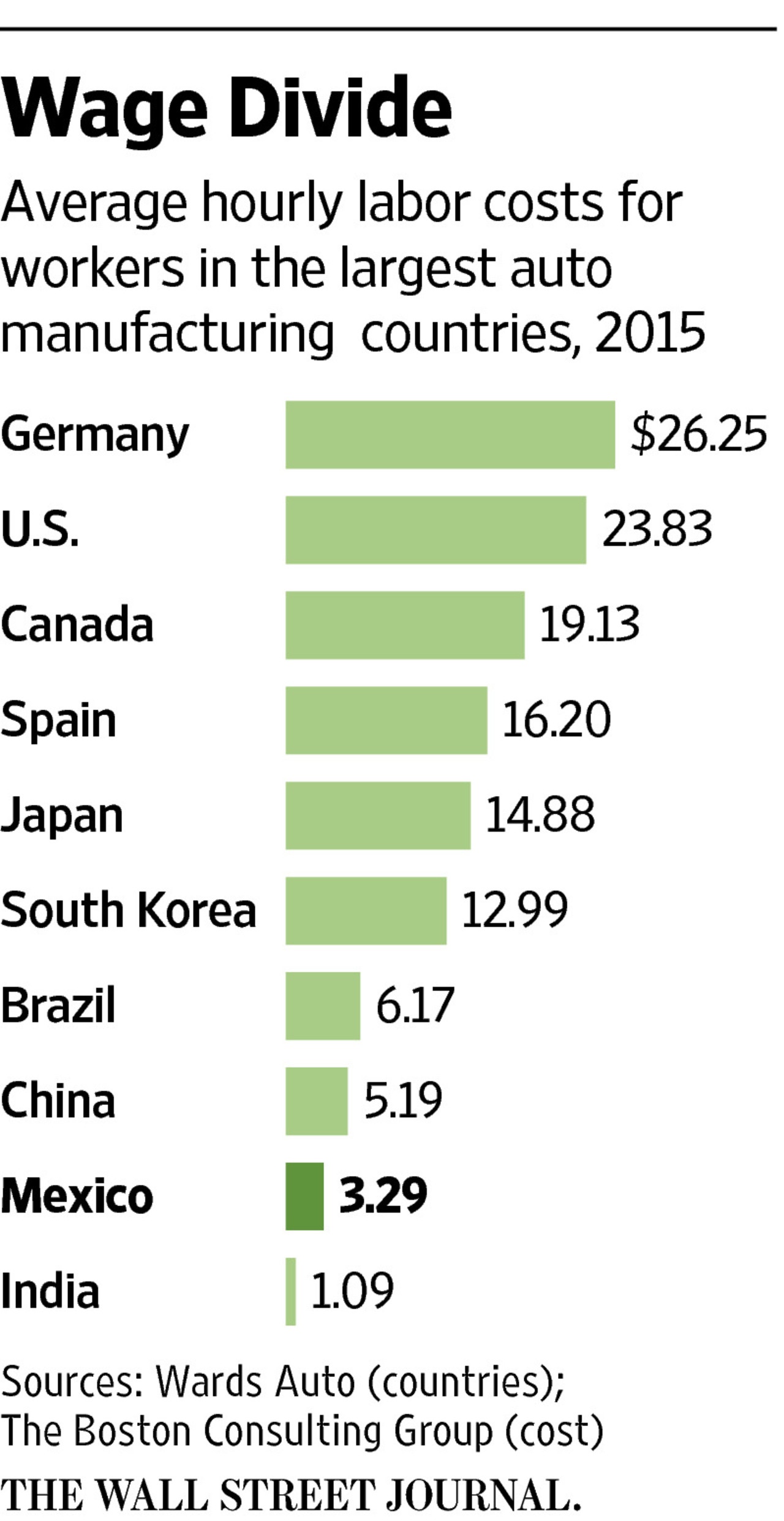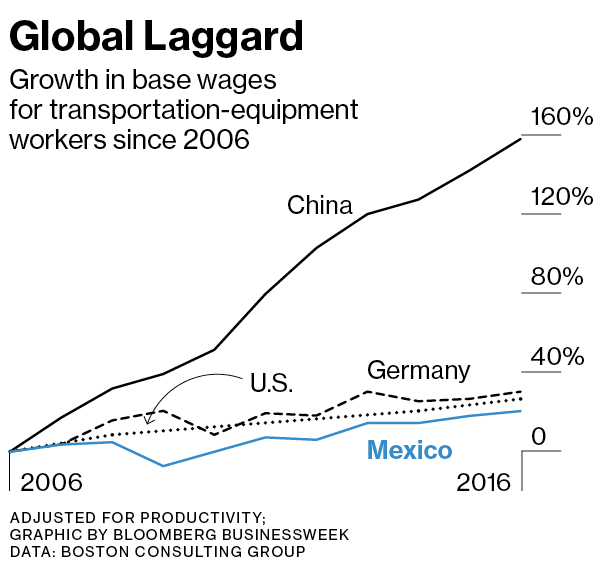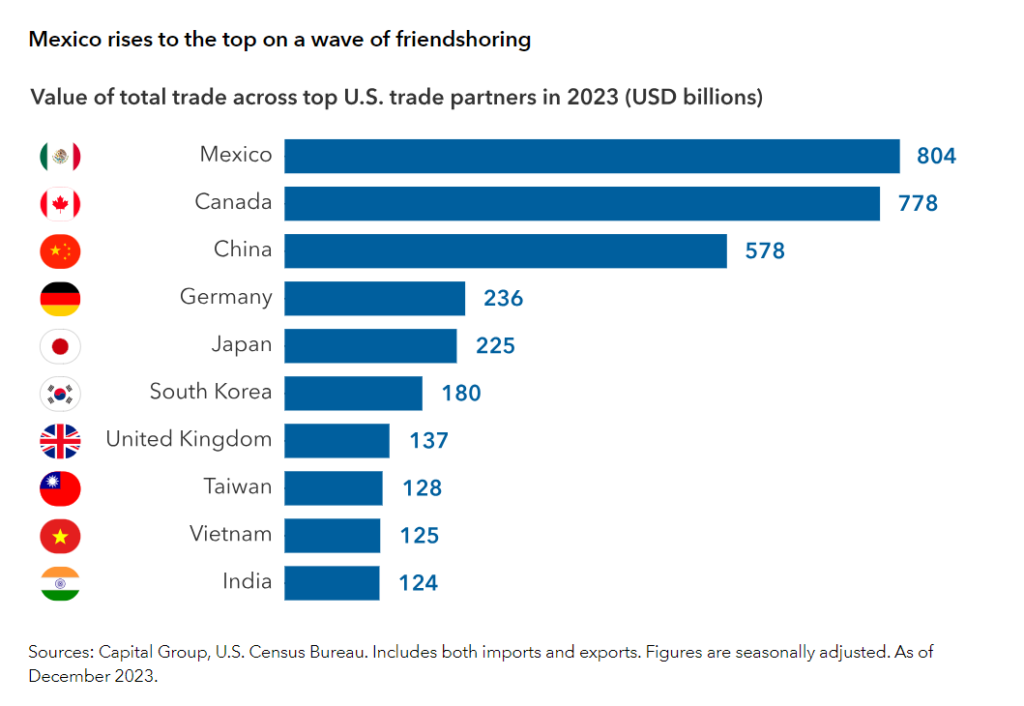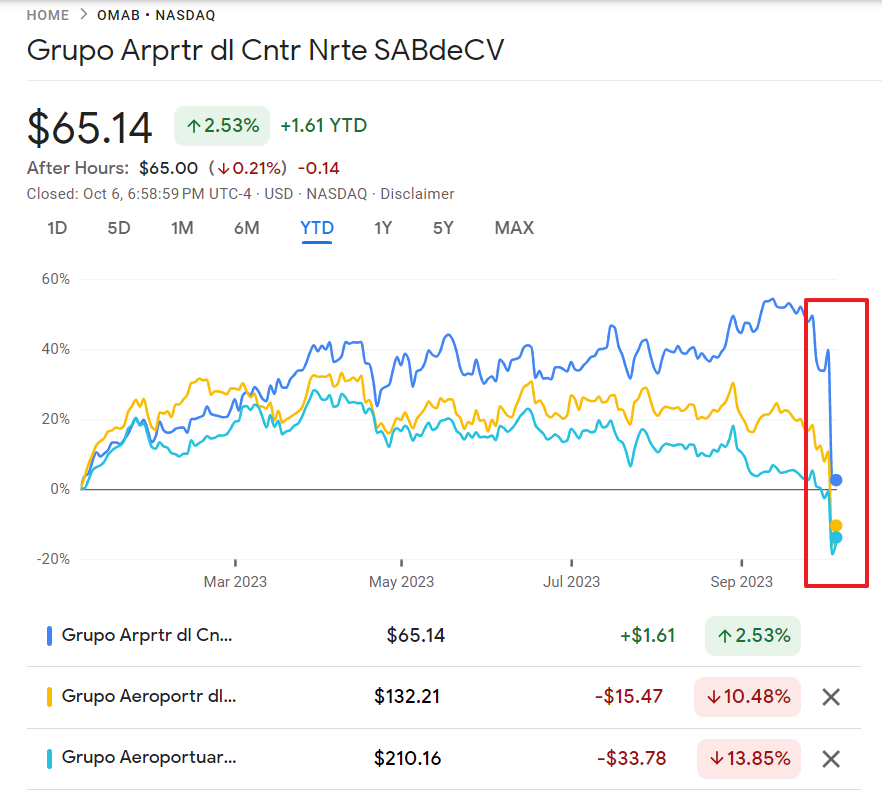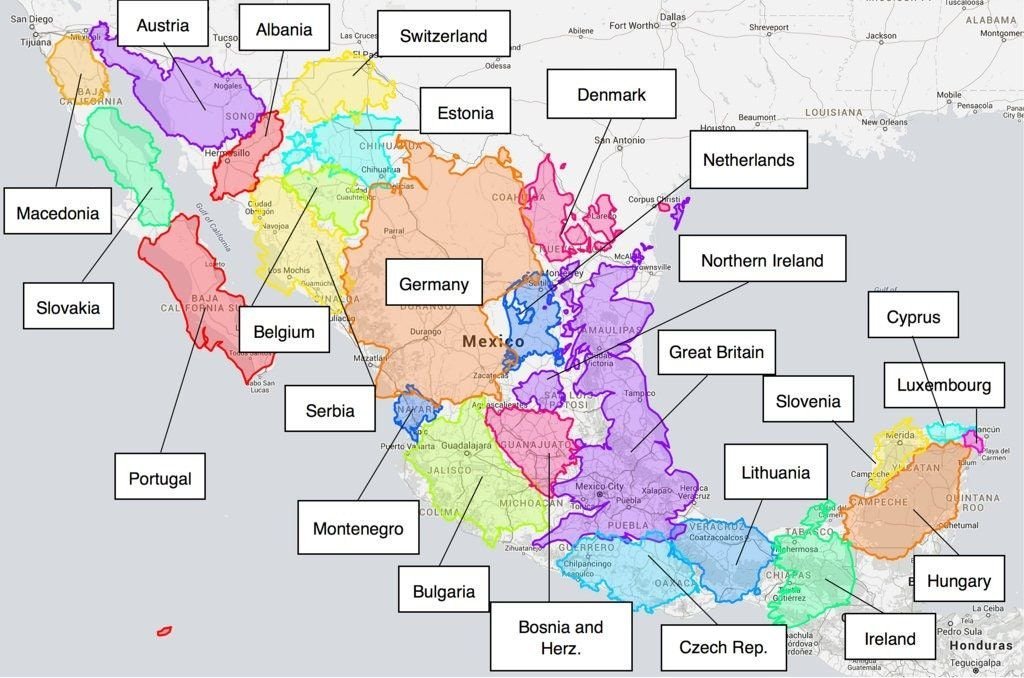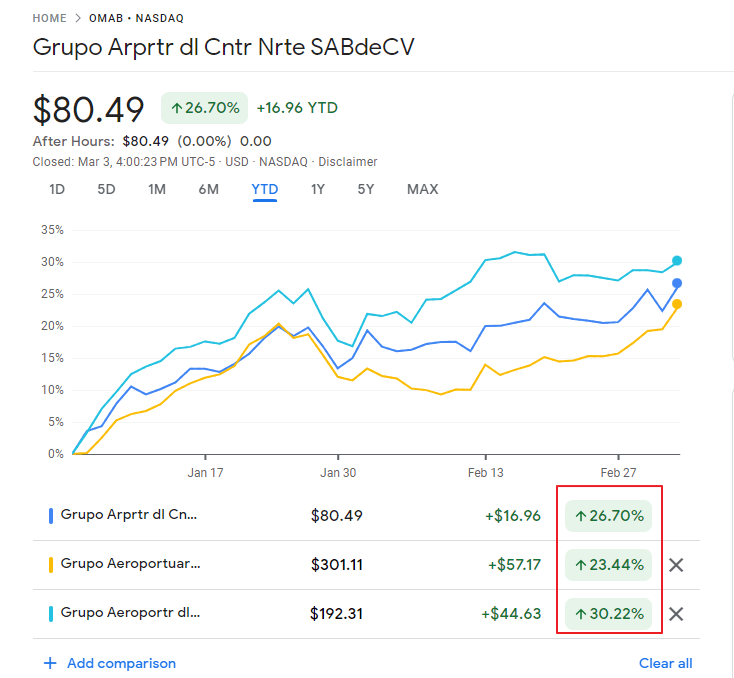In an article last last year I discussed the average hourly wage rate for auto workers in select countries. I wrote “Mexicans working at the auto factories get between $1 an hour to $ 3 an hour. Mexico’s minimum wage is 73 pesos or $4 a day. Hence auto workers earn much more than the prevailing minimum wage. Despite this Mexican workers are far cheaper since in all the developed countries hourly wages run into double digits. Mexico has many advantages for auto manufacturing due to many factors including the cheap labor, railroad and road transportation links and close proximity to the US.”
Source: It’s Getting Harder and More Expensive to Make Cars in Mexico, WSJ, Aug 14, 2016
Bloomberg published an interesting piece last week discussed why Mexican auto workers’ age is very low and why it is not increasing. It seems like powerful unions and politicians that run the country basically sell out auto workers behind their backs. From the article:
At a ceremony at Mexico’s Los Pinos presidential residence in July 2014, BMW Chief Executive Officer Harald Krüger pledged to spend $1 billion to build a factory in the northern state of San Luis Potosí that will employ 1,500 workers. To mark the occasion, he presented President Enrique Peña Nieto with a model of a silver BMW race car.
The German automaker had unwrapped its own gift two days earlier, a labor contract signed by a representative from the state chapter of the Confederación de Trabajadores de México (CTM), the country’s largest union confederation, and notarized by a Labor Ministry official. The document, which Bloomberg reviewed, sets a starting wage of about $1.10 per hour and a top wage of $2.53 for assembly-line workers. The starting rate is only a bit more than half the $2.04 an hour that is the average at Mexican auto plants, says Alex Covarrubias, a lecturer at the University of Sonora in Hermosillo.
The paperwork was filed two years before BMW broke ground on the new plant, which will turn out $45,000 3 Series sedans. When workers begin to stream into the factory sometime next year, there’s a good chance most won’t know they belong to a union.
So-called protection contracts— agreements negotiated between a company and a union that doesn’t legitimately represent workers—are illegal in the U.S. and Germany. But Lance Compa, a senior lecturer at Cornell’s School of Industrial and Labor Relations, says they’re standard operating procedure in Mexico, where deals are cut factory by factory rather than collectively across a company or industry. Experts say this is a primary reason that wages in the auto sector have stagnated in recent years, despite a fresh wave of investments by foreign carmakers, most recently by German and Japanese manufacturers. Mexico’s union bosses and politicians are more interested in keeping corporations happy than in raising the living standards of workers, Covarrubias argues. “Protection contracts are a way to keep wages artificially low,” he says.
Source: How Mexico’s Unions Sell Out Autoworkers, Bloomberg, May 5, 2017
The entire Bloomberg article is worth a read.
Related:
- Manufacturing Labor Costs in Mexico vs. China
- Average Hourly Rate for Auto Workers in Select Countries, TFS
